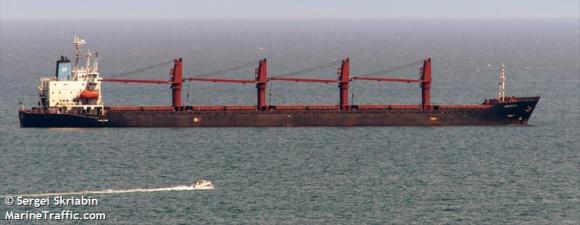 The media has been full of reports about the sanctions violating North Korean bulk carrier, dubiously named Wise Honest. Virtually every headline begins with “US seizes North Korean ship” or some variation thereof. The Justice Department also used the word “seized” to describe the taking control of the ship by the US in a press release dated yesterday, May 9, 2019.
The media has been full of reports about the sanctions violating North Korean bulk carrier, dubiously named Wise Honest. Virtually every headline begins with “US seizes North Korean ship” or some variation thereof. The Justice Department also used the word “seized” to describe the taking control of the ship by the US in a press release dated yesterday, May 9, 2019.
The story seems a bit confused, however. One might assume from the verb “seized” that the US apprehended the bulk carrier, whereas, in fact, the ship and crew were arrested a year ago in April 2018 by Indonesian authorities. The ship was found to be carrying coal in violation of international sanctions. Apparently, the transfer of the ship to the US was only completed recently. The ship, Wise Honest, is reported to be approaching U.S. territorial waters in American Samoa, in coordination with the U.S. Marshals Service and the Coast Guard.
Since at least 2016, Wise Honest is reported to have been carrying Korean coal to foreign buyers and carrying back machinery to support North Korea’s missile program, in violation of current sanctions.
Several sources have identified the ship as the second largest bulk carrier in the North Korean fleet. While no doubt accurate, that is somewhat misleading. Wise Honest is not a large ship as bulk carriers go. She is 17,000 registered tons and has a deadweight of approximately 28,000 tons, making her a “handysized” bulk carrier.
As a ship trying to trade in violation of the current sanctions her relatively small size is probably an advantage. Handysized bulk carriers are among the most common of ship types. There are approximately 2,000 or so such ships currently in service around the world, with a combined capacity of about 43 million tons. The North Koreans must have hoped that Wise Honest would slip literally and figurately below the radar. The ship did succeed in staying off AIS (automatic identification system) which Wise Honest reportedly had kept turned off since August 2017.
